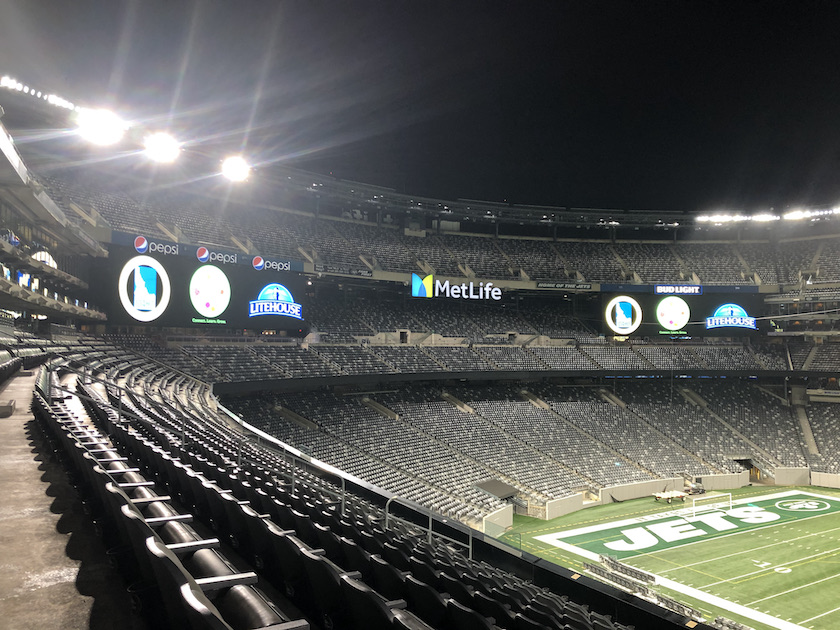Work, with all its transitions and challenges, doesn't have to define you, but the way you handle those challenges can, said former New York Giants linebacker Harry Carson, pro football hall of famer.
Carson spoke to more than 100 produce professionals at Eastern Produce Council's Sept. 21 tailgate event at MetLife Stadium in East Rutherford, N.J. The event was sponsored by Idaho Potato Commission and Litehouse Foods.
“Playing football is really something I did. It wasn't who I was,” Carson told the crowd.
His speech at the EPC event was more of an interactive Q&A with the audience in the style of 1980s TV talk show host innovator Phil Donahue, rather than a formal talk behind a podium.
Answering one audience member's question, Carson said one of his biggest challenges was transitioning from a defensive linebacker in college to a middle linebacker for the Giants when he was drafted in 1976.
“They asked me to switch positions to one I'd never played before, in the largest market for football in the world,” he said. “The middle position was reserved for white guys. It was a ‘thinking man's position,' and for me to come from a small black college and to get that position, well, I was able to make that transition.”
Carson played with the team for his whole football career, for 13 seasons, or 173 games, leading the team in tackles for five years and serving as team captain for 10.

Then he tackled another big life and career transition when he retired after the 1988 season, two years after helping the team win its first Super Bowl.
Carson became president and CEO of an eponymous sports consulting and promotions company and authored two books, “Point of Attack” and “Captain for Life.” He was executive director and chairman of the Fritz Pollard Alliance, which works to create more racial and gender diversity in non-player roles in the NFL, such as coaches, scouts and coordinators.
A spokesman for several health issues, Carson also spreads awareness of the lifelong neurological damage that can happen from sports concussions and is considered an expert on the matter.
At his induction into the Professional Football Hall of Fame in 2006, Carson used his speech to urge the NFL to take better care of its retired players, with pensions and health care benefits.
Taking care of your teammates, your staff and your family are always what matters most, he told the EPC crowd.
This is a value he learned young.
Growing up in South Carolina, Carson's parents didn't reach high school, and his mother worked as a housecleaner and had to move to Newark, N.J., when he was 10, to follow the work. They arranged visits whenever possible.
So, playing for the Giants in New York had a familial benefit too, because he could pick up his mom after football practice, take her to church, spend time with her and be back in time to play for the team. She was only 12 miles away.
“I came from a very loving family, and I try to instill that in my family,” Carson said. “I try to be nice to people — except on the football field.”
The next Eastern Produce Council events include the 7th Annual Joe DeLorenzo Family Apple Picking Oct. 2 and the New York Produce Show and Conference Dec. 13-17, when EPC will take applications for its 2022 Leadership Program.

